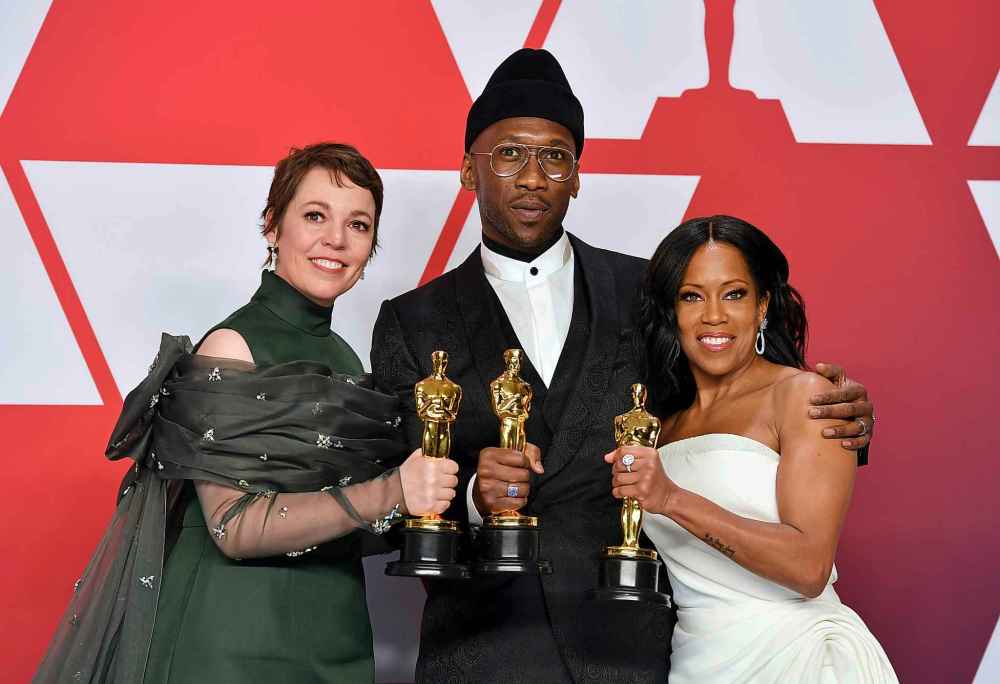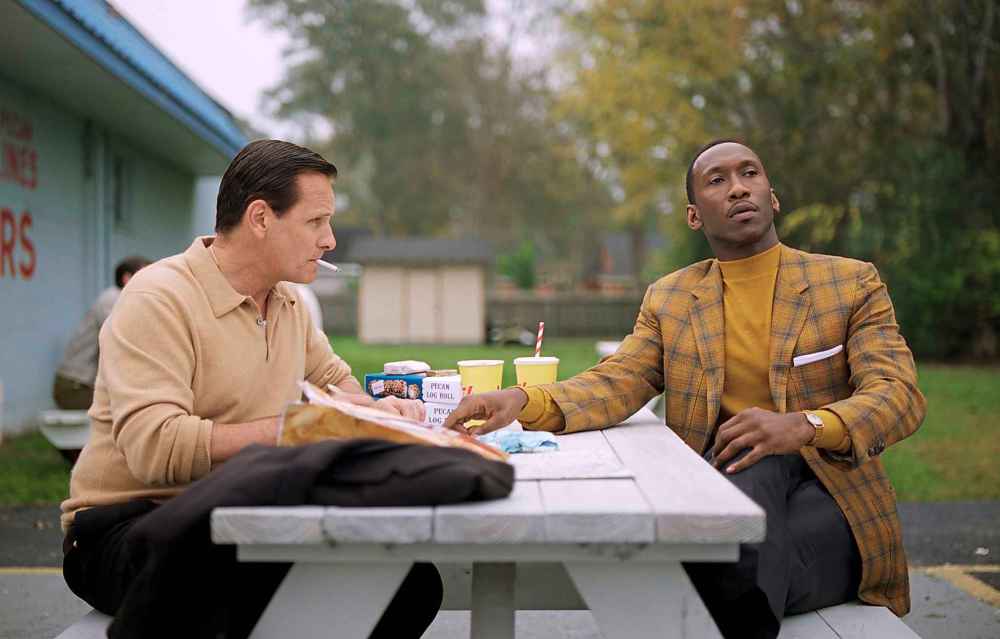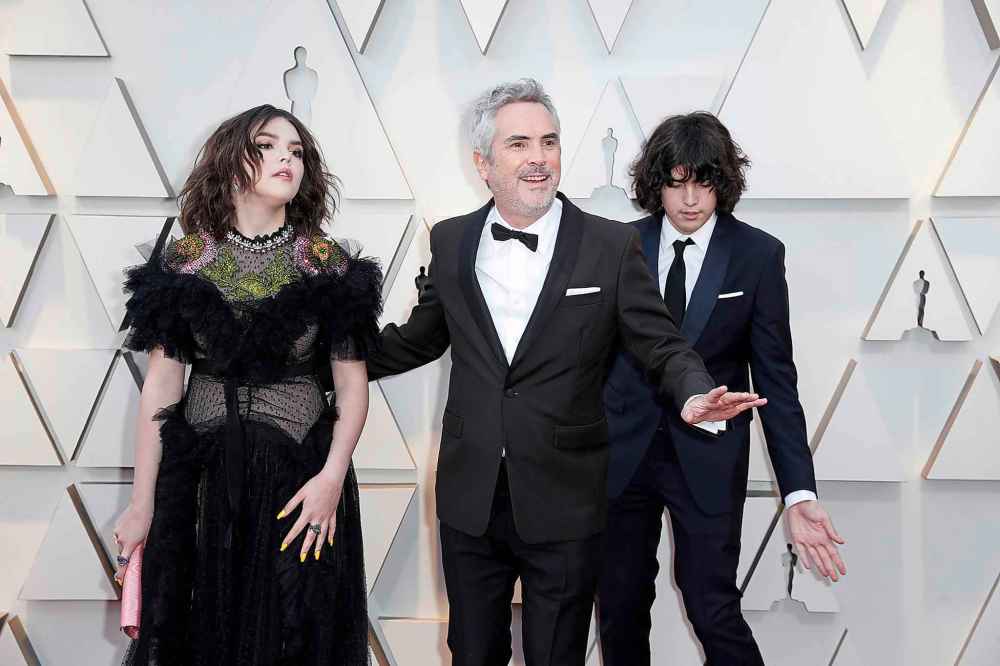Old habits die hard at Academy Awards Host-free, shorter programming worked, best film didn't
Read this article for free:
or
Already have an account? Log in here »
To continue reading, please subscribe:
Monthly Digital Subscription
$0 for the first 4 weeks*
- Enjoy unlimited reading on winnipegfreepress.com
- Read the E-Edition, our digital replica newspaper
- Access News Break, our award-winning app
- Play interactive puzzles
*No charge for 4 weeks then price increases to the regular rate of $19.00 plus GST every four weeks. Offer available to new and qualified returning subscribers only. Cancel any time.
Monthly Digital Subscription
$4.75/week*
- Enjoy unlimited reading on winnipegfreepress.com
- Read the E-Edition, our digital replica newspaper
- Access News Break, our award-winning app
- Play interactive puzzles
*Billed as $19 plus GST every four weeks. Cancel any time.
To continue reading, please subscribe:
Add Free Press access to your Brandon Sun subscription for only an additional
$1 for the first 4 weeks*
*Your next subscription payment will increase by $1.00 and you will be charged $16.99 plus GST for four weeks. After four weeks, your payment will increase to $23.99 plus GST every four weeks.
Read unlimited articles for free today:
or
Already have an account? Log in here »
Hey there, time traveller!
This article was published 25/02/2019 (2484 days ago), so information in it may no longer be current.
In the lead-up to the 91st Academy Awards, in a year that’s been asking some crucial questions about power and representation, the nonagenarian organization tried hard to seem relevant.
Some Oscar watchers see the organization as increasingly pulled between two options: popular movies and prestige films (say, Black Panther versus Roma). But there’s a third choice, a fatal in-between category where the Academy Awards often go terribly, terribly wrong: mediocre, middlebrow “crowd-pleasers.”
You know, like Green Book.

For many viewers, that flawed film’s best picture win was a bit of an anticlimax to what had been an otherwise diverse, interesting, sometimes unexpected Oscar night.
Sunday’s ceremony actually benefited from its host-free status, which not only allowed for a range of presenters but set a faster, looser, up-for-anything vibe.
That mood was reinforced by winners like Bao, an animated short that gently explored Chinese-Canadian identity and the immigrant experience, and Period. End of Sentence, a short doc about menstruation.
Alfonso Cuarón won best director for Roma, a Spanish-language Mexican film with an Indigenous lead, and there was some long-overdue recognition for Spike Lee for BlackKkKlansman’s best adapted screenplay. Black women behind the camera broke some new ground, with Ruth E. Carter and Hannah Beachler winning for costume and production design, respectively, for Black Panther.
The winners’ circle of acting awards featured Regina King, who won the best supporting actress trophy for the otherwise overlooked If Beale Street Could Talk, and Mahershala Ali (though why for best supporting actor and not best actor, since Green Book is supposed to be about equality). Rami Malek, who snagged best actor, referenced his experience as the son of Egyptian immigrants in his speech.
The Oscars ceremony felt fresh and more-or-less 21st-century until it didn’t, with Green Book capping off a promising night with what felt like a real Oscar throwback.
Green Book is the kind of Oscar winner that appears plausible but doesn’t really hold up. It looks good, with strong production values and solid performances. There’s a hollowness under that handsome veneer, though. This is a film that seems to raise questions but then provides pat answers and that’s a terrible combination.

The film’s trailer announces that it is “inspired by a true friendship.” Ali plays Don Shirley, a black concert pianist touring the Deep South in 1962, with Viggo Mortensen playing his white driver, Tony Vallelonga, a man whose racist attitudes are challenged by the more brazen racism of the Jim Crow-era South.
The film’s defenders suggest that its uplifting message — about two different men finding common ground — is a balm for these divisive times.
Detractors believe that maybe the film needs to dig a little deeper into why these are divisive times.
Green Book is a movie about racism. It’s also, as several commentators have pointed out, the kind of movie about racism that seems to be made for white people.
The story uses the black character’s pain as fuel for the white character’s moral journey. It emphasizes individual epiphany instead of looking at larger systemic issues. And it safely situates racism in the past — back when cars had fins and women had beehive hairdos — rather than seeing it as a persistent, ongoing struggle.
In fact, Green Book looks suspiciously like Seth Meyers’ recent parody “White Savior: The Movie,” in which Late Night contributor Amber Ruffin brings eye-rolling irony to the fact that everything her character accomplishes, from science to cello playing to social activism, is somehow credited to her white co-star.
Green Book has also prompted call-backs to Crash, with several Oscar watchers sending congrats to that excruciatingly self-righteous 2004 movie for no longer being the go-to example of the Academy Awards getting things wrong. On Twitter, film writer David Ehrlich hilariously retitled Green Book as “Crash 2: The Crashening.”

Lee also raised the ghost of Driving Miss Daisy, and for good reason. At the 1990 Oscars, Lee’s urgent, angry film about race in America, Do the Right Thing, lost best screenplay to that why-can’t-we-all-get-along Bruce Beresford film. This time BlacKkKlansman lost best pic to Green Book.
“Every time somebody’s driving somebody, I lose,” Lee joked on Sunday night.
That final best picture award for Green Book was a letdown. Still, many of the night’s winners will be remembered for making history. Green Book will mostly be remembered for becoming the new Crash.
alison.gillmor@freepress.mb.ca

Studying at the University of Winnipeg and later Toronto’s York University, Alison Gillmor planned to become an art historian. She ended up catching the journalism bug when she started as visual arts reviewer at the Winnipeg Free Press in 1992.
Our newsroom depends on a growing audience of readers to power our journalism. If you are not a paid reader, please consider becoming a subscriber.
Our newsroom depends on its audience of readers to power our journalism. Thank you for your support.
History
Updated on Wednesday, February 27, 2019 9:21 AM CST: Corrects reference to Chinese-Canadian identity and the immigrant experience









